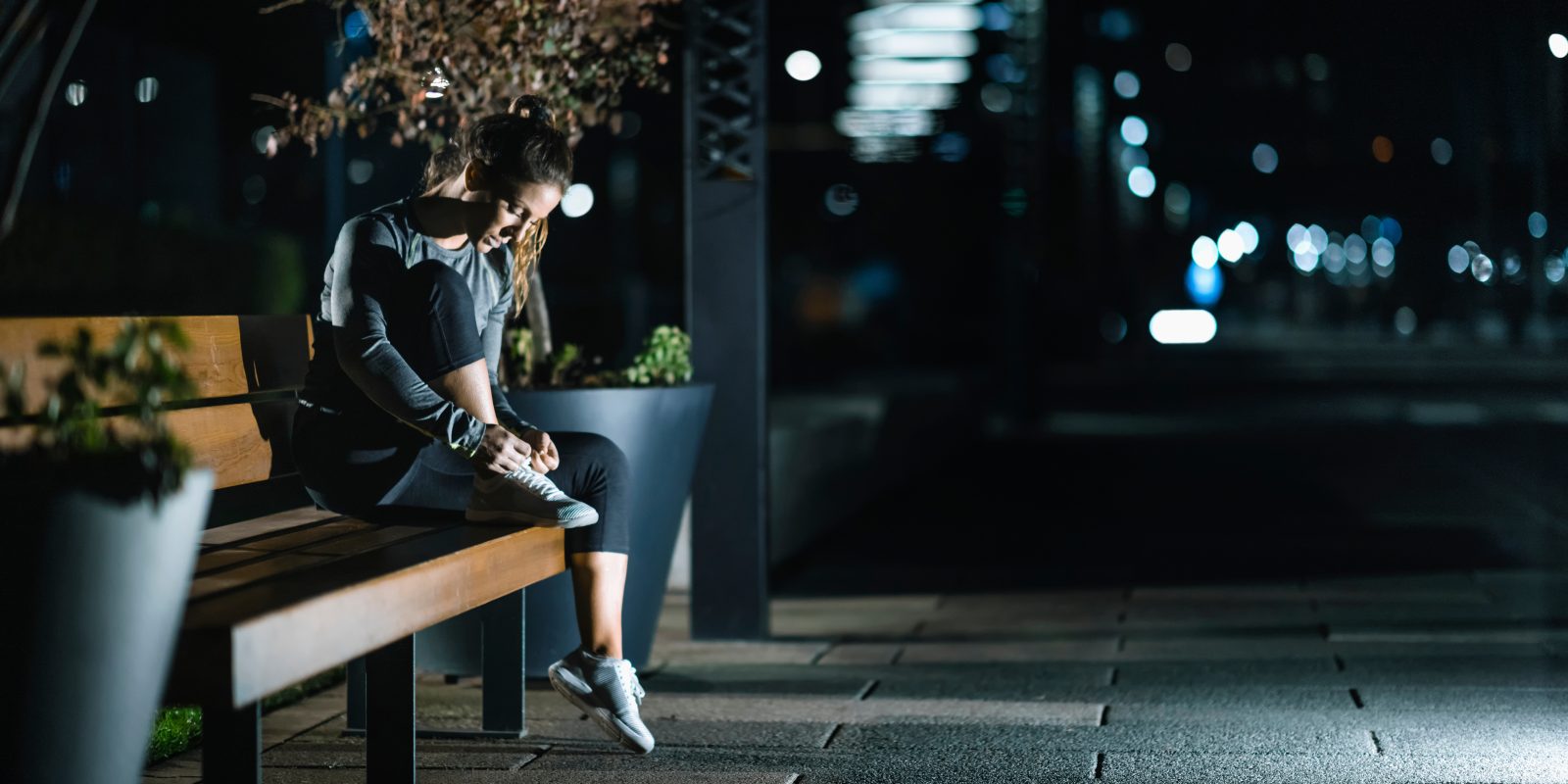Does exercising at night truly interfere with your sleep? Here’s what you need to understand if you like working out before going to bed. If you’ve been having trouble falling asleep, you’ve probably tried various tactics to help you doze off quicker: putting your phone away early, creating a relaxing bedroom environment, and avoiding exercise before bedtime.
This is a valid question, especially if you’re tight on time during the day and evenings are your only opportunity to fit in a workout. However, many people hesitate to work out before sleep because they believe it might energize their body and mind, making it difficult to unwind.
Rest assured: A 2019 review published in the journal Sports Medicine concluded that scientific evidence doesn’t back the idea that exercising before bed revs up your energy—instead, the opposite might be true, as the researchers noted. A separate review in 2022, published in the journal Nature and Science of Sleep, supported this statement and even added that some moderate-intensity evening workouts helped people sleep better. There’s no “perfect time” for exercise, and “working out at night is better than not exercising at all,” explains Thom Manning, MS, CSCS, a sleep and recovery coach with the fitness app Future. However, certain intense routines—particularly those done very close to bedtime—might
make getting high-quality sleep a bit more challenging. Here’s what you should be aware of.
Indeed, specific evening workouts can impact your sleep.
Engaging in intense workouts, such as Peloton’s latest high-intensity interval training (HIIT) cycling class or a sprint-focused running session, too close to bedtime (within about an hour) can interfere with your body’s ability to regulate its temperature, which is important for quality sleep. Thomas Kilkenny, DO, the director of Staten Island University Hospital’s Institute of Sleep Medicine, explains to SELF that this process affects your core temperature.
“The brain tends to fall asleep better when the temperature decreases,” he clarifies. This decline in body temperature typically begins roughly two hours before you fall asleep. Therefore, if you elevate your internal temperature through vigorous physical activity—whether it’s heavy lifting or cardio—without allowing yourself enough time to cool down, your sleep quality might be compromised.
Engaging in these high-intensity workouts before bedtime can also make it more challenging to initiate sleep, likely because they elevate your heart rate, as suggested by a small 2014 study published in the European Journal of Applied Physiology. Furthermore, the impacts of intense exercise linger even after you’ve fallen asleep. Engaging in tough workouts before bed can lead to less rapid eye movement (REM) sleep, a phase crucial for processing emotions, consolidating memories, brain development, and more.
So… what’s the ideal workout for evenings?
If working out at night fits your schedule best, you don’t necessarily need to stop. Instead, you might just need to adjust your exercise routine if it’s affecting your sleep quality.
According to the available research, Dr. Kilkenny suggests giving moderate-intensity exercise a try if you prefer to work out in the evening. As indicated by the 2022 review in Nature and Science of Sleep, this type of physical activity could potentially promote more rejuvenating sleep. Restorative sleep is vital for the recovery and renewal of tissues throughout your body. This implies that exercising in the evening could also improve your recovery after a workout, aiding in the healing of minor muscle tears that can occur during exercise and facilitating their growth into stronger muscles.
What’s the right kind of exercise for the evening?
A moderately intense workout gets you breathing a bit harder, but you can still hold a conversation during it—think of it as a 5 to 6 on a 1 to 10 effort scale, where 10 is the maximum effort. This could include brisk walking, gentle cycling, Pilates, yoga, or resistance training with bands, explains Ellen Thompson, a NASM-certified personal trainer at Blink Fitness. Yoga, in particular, can be especially beneficial before bedtime, as research from 2022 published in BMC Psychiatry shows it can improve sleep quality by reducing the number of nighttime awakenings.
However, if you prefer more intense exercise (ranking around 7 to 8 out of 10 in effort), you don’t necessarily have to save it for the daytime. Engaging in high-intensity workouts like running, HIIT-based cycling, or max-effort strength training two to four hours before bed is unlikely to disrupt your sleep, according to a 2021 study in Sleep Medicine Review. This means that if your bedtime is later, you might have time to fit in a HIIT routine after work and still give your body ample time to return to its baseline before winding down for sleep.
If you opt for a more intense workout in the evening, pay attention to how you structure your session. Thompson advises starting with the more challenging exercises to stimulate your body and elevate your heart rate. For example, if you’re doing strength training, you might begin with plyometric exercises or compound lifts like heavy squats, deadlifts, or bench presses before moving on to less demanding ones like lighter-weight or isolation moves. Then, gradually transition to more relaxed movements, such as light aerobic activity, to slowly lower your heart rate before heading into a cooldown phase.
Regardless of the type of activity, Dr. Kilkenny recommends finishing your workout at least one to two hours before going to bed.
What you do before and after your evening workout is important too.
Getting a good night’s sleep isn’t just about your pre-sleep routine. Practicing healthy sleep habits all day can significantly improve your sleep quality, especially if you’re planning to exercise before bedtime. The National Sleep Foundation offers some proven suggestions, such as getting natural sunlight exposure early in the morning, reducing coffee and caffeine intake at least eight hours before sleep, maintaining consistent sleep and wake times, dimming bright lights in the evening, and creating a relaxing sleep environment (think cool temperatures, minimal light and noise, comfortable bedding, and soothing scents).
Even if your actual workout is scheduled for the evening, incorporating a few walks throughout the day can be advantageous. According to a 2019 study in Sleep Health, the more steps you take during the day, the better your sleep quality might be. Additionally, managing stress earlier in the day is crucial. “Practices like meditation, deep breathing exercises, and spending time in nature can quiet your mind and prepare you for improved sleep later,” says Thompson.
After your workout, it’s crucial to help your body unwind from the physical activity you just engaged in. So, don’t skip your post-workout cooldown.
“A proper cooldown is important to shift the body into a state conducive to quality sleep,” says Manning. Stretching and using a foam roller are effective ways to ease muscle tension, release accumulated stress, and encourage a feeling of calmness and relaxation throughout your body, according to Thompson.
Taking a warm shower after your workout can also have a significant impact. It might seem counterintuitive, but a warm shower helps your body cool down by prompting your blood vessels to expand. This expansion allows more blood to flow to the skin, resulting in the release of internal heat and a decrease in your core body temperature. This cooling effect supports better sleep.
Remember: The best time to work out is whenever it suits your schedule. If that happens to be in the evening, no worries. Just be sure to plan and set yourself up for a restful night’s sleep once you’re done with those final reps.
















Find Us on Socials